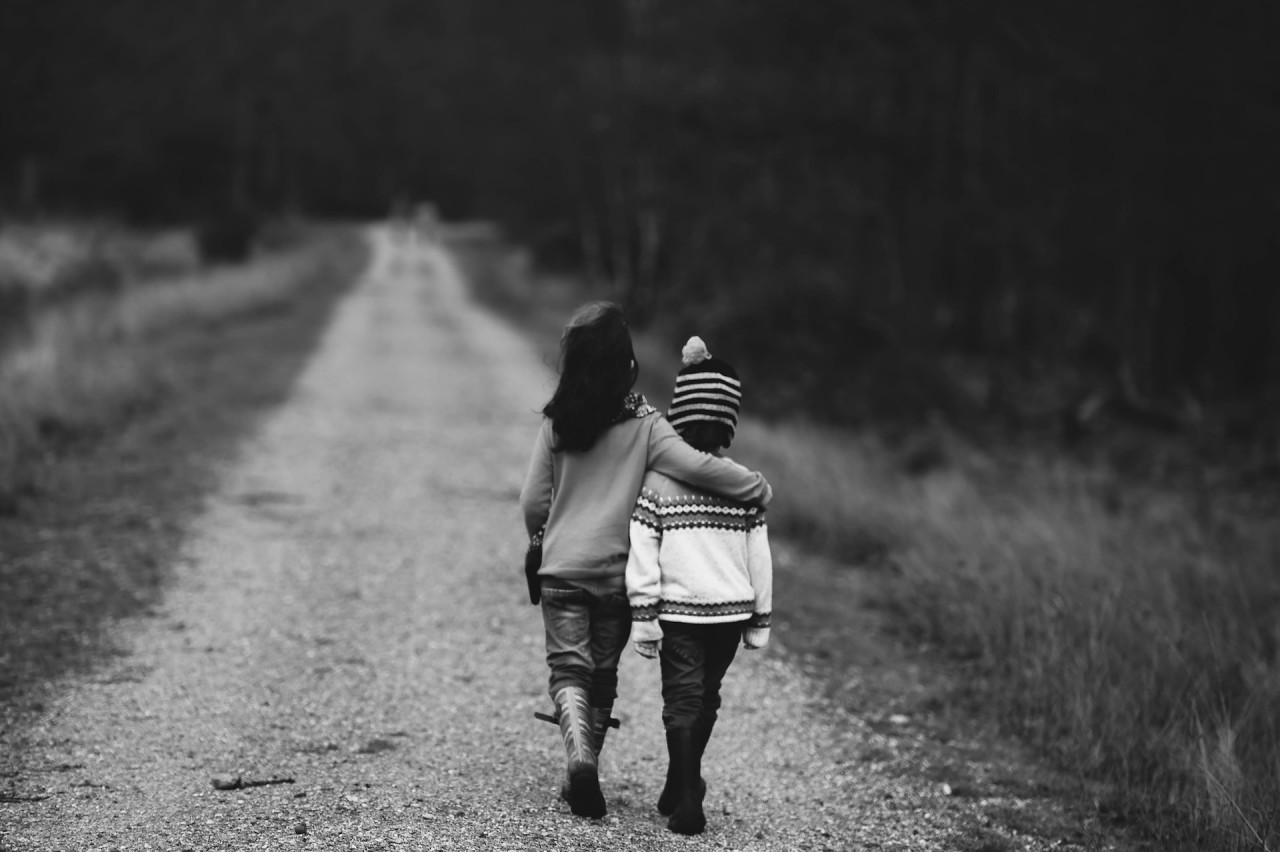
Are Siblings More Important Than Parents?
Published on 2022-10-14 by Ben Healy
Photo by Annie Spratt on Unsplash
We don’t choose our siblings the way we choose our partners and friends. Of course, we don’t choose our parents either, but they usually make that up to us by sustaining us on the way to adulthood. Brothers and sisters are just sort of there. And yet, when it comes to our development, they can be more influential than parents. This holds whether they are older and cool, or younger and frustrating; whether we follow in their footsteps, or run screaming in the other direction.
We don’t choose our siblings the way we choose our partners and friends. Of course, we don’t choose our parents either, but they usually make that up to us by sustaining us on the way to adulthood. Brothers and sisters are just sort of there. And yet, when it comes to our development, they can be more influential than parents. This holds whether they are older and cool, or younger and frustrating; whether we follow in their footsteps, or run screaming in the other direction.
Part of siblings’ sway has to do with their sheer presence. Eighty-two percent of kids live with a sibling (a greater share than live with a father), and about 75 percent of 70-year-olds have a living sibling. For those of us who have brothers or sisters, our relationships with them will likely be the longest of our life.
Whether these relationships make our life better or worse is a more complicated question. On the upside, positive interactions with siblings during adolescence foster empathy, prosocial behavior, and academic achievement. This effect can be complicated by a full house, however. Kids with more siblings (a larger “sibship,” to use the industry term) do worse in school — although the universality of this finding has been challenged by studies of Mormons and the entire population of Norway.
When a sibling relationship is bad, however, it can be really bad—as in messing-up-your-life bad. Tense sibling relationships make people more likely to use substances and to be depressed and anxious in adolescence. Moreover, sibling bullying makes a kid more likely to engage in self-harm as a teen and to become psychotic by age 18.
Whether a person models herself after her siblings or tries to distinguish herself has particularly important consequences. One study found that siblings who felt positively about each other tended to achieve similar education levels, while those who spent unequal time with their dad and perceived unequal parental treatment had diverging educational fortunes. Not that divergence is necessarily bad: Research suggests that as siblings’ relationships with their parents grow more different over time, their relationship with each other may become warmer. And emulating your sibling can be a mistake, depending on what she’s up to: Girls are more likely to get pregnant in their teens and teenagers are more likely to engage in risky behavior if an older sibling did so first. Younger siblings also may have sex earlier than older ones (partly because their big brothers and sisters introduce them to more experienced potential partners).
One way or another, sibling influence is lasting. A study of more than 1 million Swedes found that one’s risk of dying of a heart attack spikes after a sibling dies of one, due not only to shared DNA but also to the stress of losing such a key figure. Which makes sense: Most of us are different people than we’d have been if our brothers or sisters were never born. Siblings seem like they’re just there only until they aren’t.
Whether these relationships make our life better or worse is a more complicated question. On the upside, positive interactions with siblings during adolescence foster empathy, prosocial behavior, and academic achievement. This effect can be complicated by a full house, however. Kids with more siblings (a larger “sibship,” to use the industry term) do worse in school — although the universality of this finding has been challenged by studies of Mormons and the entire population of Norway.
When a sibling relationship is bad, however, it can be really bad—as in messing-up-your-life bad. Tense sibling relationships make people more likely to use substances and to be depressed and anxious in adolescence. Moreover, sibling bullying makes a kid more likely to engage in self-harm as a teen and to become psychotic by age 18.
Whether a person models herself after her siblings or tries to distinguish herself has particularly important consequences. One study found that siblings who felt positively about each other tended to achieve similar education levels, while those who spent unequal time with their dad and perceived unequal parental treatment had diverging educational fortunes. Not that divergence is necessarily bad: Research suggests that as siblings’ relationships with their parents grow more different over time, their relationship with each other may become warmer. And emulating your sibling can be a mistake, depending on what she’s up to: Girls are more likely to get pregnant in their teens and teenagers are more likely to engage in risky behavior if an older sibling did so first. Younger siblings also may have sex earlier than older ones (partly because their big brothers and sisters introduce them to more experienced potential partners).
One way or another, sibling influence is lasting. A study of more than 1 million Swedes found that one’s risk of dying of a heart attack spikes after a sibling dies of one, due not only to shared DNA but also to the stress of losing such a key figure. Which makes sense: Most of us are different people than we’d have been if our brothers or sisters were never born. Siblings seem like they’re just there only until they aren’t.